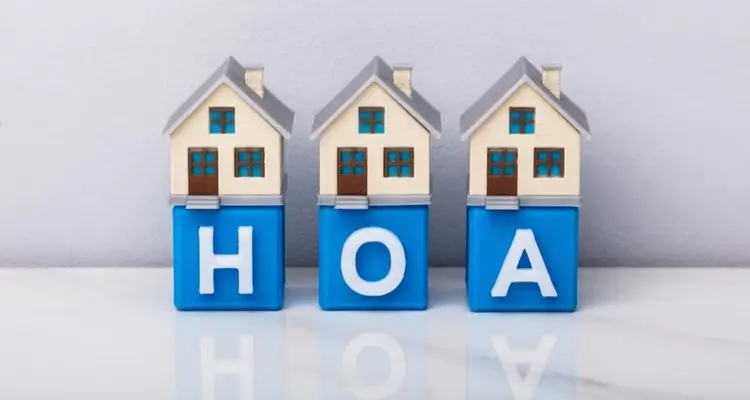
Amid an economic downturn and on the heels of the pandemic crisis, Americans previously considering a property purchase may be asking themselves: Why would I want to buy a home anytime soon, considering all the risk and uncertainty in the market right now?
It’s a fair question—one that can only be answered based on personal financial and health circumstances. But ask the experts, and many will tell you that now can be a great time to buy if you can afford it, are confident in your job security, and don’t have a home to sell first.
The reasons are multifold, says Robert Johnson, professor of finance in the Heider College of Business at Creighton University in Omaha, Nebraska.
“Continued low mortgage interest rates, economic uncertainty, and the unwillingness and inability of potential buyers to tour listed homes during this time of social distancing may make this a perfect storm for secure home buyers,” he says. “With a limited pool of potential purchasers, the current situation may represent a stronger buyer’s market for homes already listed.”
Also, with many jobs in peril, “additional homes may come on the market, as some current homeowners may be forced to list their homes,” Johnson adds.
Marie Bromberg, a real estate agent for Compass in New York City, agrees.
“Even as COVID-19 restrictions ease, I expect it to continue to be a good time to buy. We will still be in a downturn later this year, and these tend to be the markets where you can find the most value and the most negotiability,” Bromberg notes. “In this market, even established neighborhoods are offering value buys.”
Katsiaryna Bardos, associate professor of Finance at Fairfield University in Fairfield, Connecticut, expects home prices to decrease in the coming weeks due to record unemployment, the falling stock market, and less of a demand from a dwindling pool of buyers.
“Falling house prices combined with historically low interest rates make this a favorable market for buyers who have not lost jobs,” says Bardos.
Act fast or practice patience?
Bardos, like some others, expects the downturn to be short-lived. That means you should consider buying sooner versus later to capitalize on a favorable window of opportunity for buyers.
“The recovery is likely to be fast, especially if a coronavirus vaccine is developed early next year,” predicts Bardos.
But Peter Donisanu, chief financial strategist for Pittsburgh-based Franklin Madison Advisors, doesn’t quite share that optimistic outlook.
“Home prices could face downward pressure by year’s end if the economic slowdown is worse than what the market is currently pricing in,” Donisanu says. “A recession could bring the recent housing recovery to a halt and provide even more favorable opportunities for well-qualified home buyers.”
Donisanu’s advice?
“If you can, wait a few months to purchase to see if even better deals come to market.”
When it comes to home prices and interest rates, however, it’s almost impossible to perfectly time the market. That’s why Bromberg suggests not waiting too long.
“We won’t be in a downturn forever. These things are cyclical, and when we do start to escalate prices again, buyers who had the foresight to purchase during the downturn will benefit as the market improves, and their home values increase,” explains Bromberg.
Owning has its perks
But whether you’re ready to act now or want to hold off for greater bargains a bit later, the pros concur that, overall, buying and owning is a smart long-term strategy. One big reason is that, as you pay down your mortgage principal, you build equity in your home.
“Building equity in a home is the chief method people utilize to build wealth,” says Johnson, noting that renters don’t enjoy this benefit. The rent they fork over every month is money they will never see again.
Consider that, per the US Census Bureau’s most recent data, the median net worth of households is around $95,000. But the median net worth excluding equity is $29,410. In other words, home equity comprises nearly 69 percent of total net worth. This demonstrates that owning a home can be a way to build long-term wealth—wealth that can be passed on to your descendants.
In addition, plenty of eligible homeowners can take advantage of tax benefits, including the ability to deduct at least a portion of your paid property taxes as well as mortgage interest paid.
“Depending on your tax situation, buying a home can be a smart move compared to renting when the mortgage interest deduction is taken into account,” Donisanu says.
And don’t forget: Homeowners truly have a place they can call their own and customize.
“You can modify and expand your space to your tastes, while renters cannot,” Bardos says.
Buying isn’t for everyone
But not everyone is cut out for homeownership. To be a worthy prospect, particularly at this economically risky time, it’s important to meet key criteria.
“Prospective buyers with solid credit profiles, stable employment history, and strong prospects of continued future employment, sufficient emergency cash reserves, and a plan to occupy the home for at least five years to recoup the closing costs they’ll pay are good candidates to buy in this environment,” Donisanu believes.
Given current market conditions, lenders and sellers will also likely favor employed (not self-employed or freelance) buyers, “because they have the stability of a solid job with a company,” says Bromberg.
Indeed, lenders are likely to become more selective in their loan approvals to weed out chancy borrower bets.
“Buyers who are employed in a cyclical industry or have a weak credit profile, low cash reserves, and short expected occupancy periods are probably better off renting,” says Donisanu.
You also need to be prepared to take on all the responsibilities of ownership—including the costs and labor involved in expected maintenance and unexpected repairs, property taxes and homeowners insurance fees that may suddenly rise, and utility expenses that could fluctuate.
That’s why it pays to “do your homework before you sign on the dotted line at closing,” recommends Donisanu. Consult closely with your real estate agent, financial planner, lender, and property attorney to ensure that you’re in the best position to buy and have chosen a home and location that represents a sound investment.



